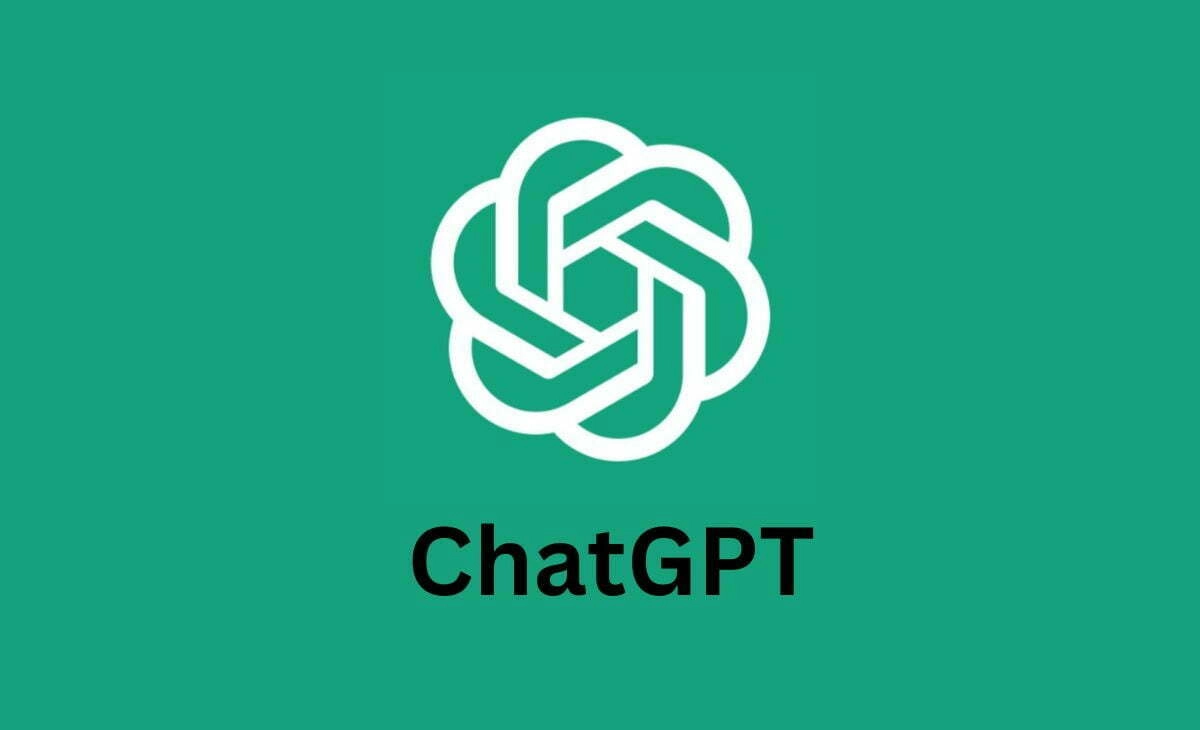
ChatGPT: Your AI companion for insightful conversations and answers, powered by advanced natural language processing and machine learning.

ChatGPT: Your No. 1 Amazing Conversational AI Companion
What is ChatGPT?
ChatGPT is an advanced conversational AI model developed by OpenAI.
It leverages the GPT (Generative Pre-trained Transformer) architecture to understand and generate human-like text based on the input it receives.
Trained on diverse datasets, ChatGPT can engage in a wide range of topics, from answering questions and providing explanations to creative writing and simulating conversations.
Key Features:
- Natural Language Understanding: ChatGPT excels in understanding the context and nuances of human language, making interactions feel more intuitive and natural.
- Versatility: It can assist with various tasks, including drafting emails, creating content, brainstorming ideas, offering recommendations, tutoring in different subjects, and even providing entertainment through storytelling.
- Adaptability: The AI adapts to the style and tone of the conversation, ensuring responses are relevant and coherent. It can mimic different writing styles or adjust the complexity of its answers based on the user’s needs.
- Continuous Learning: While the model itself doesn’t learn in real-time from individual interactions due to privacy and safety reasons, it is continually improved through updates and new training data provided by OpenAI.
Applications:
- Customer Service: Assisting businesses in handling customer inquiries efficiently.
- Education: Offering tutoring and educational support across various subjects.
- Content Creation: Helping writers generate ideas, draft articles, and edit content.
- Personal Assistance: Managing tasks such as setting reminders, providing recommendations, and more.
Limitations:
Despite its advanced capabilities, ChatGPT is not infallible. It can sometimes produce incorrect or nonsensical answers, and its knowledge is limited to what was available up to its last training cut-off.
It also doesn’t have real-time awareness or personal memory, meaning it treats each conversation independently without recalling past interactions.
In summary, ChatGPT is a powerful AI tool designed to enhance human-computer interaction through its ability to understand and generate natural language.
Its versatility makes it valuable in various applications, though users should remain mindful of its limitations and ensure critical tasks are supplemented with human oversight.
Who Develop ChatGPT?
ChatGPT was developed by OpenAI, an artificial intelligence research organization.
OpenAI was founded in December 2015, and it has since become renowned for its work in advancing AI technologies and making them more accessible to the public.
The development of It’s specifically falls under OpenAI’s efforts to create powerful language models capable of understanding and generating human-like text.
The specific teams and researchers involved in the creation of ChatGPT include experts in machine learning, natural language processing (NLP), and deep learning.
The model itself is built upon the transformer architecture, which has revolutionized NLP tasks due to its ability to handle long-range dependencies and generate coherent text based on input data.
OpenAI’s mission with ChatGPT and similar models is to push the boundaries of AI research while ensuring these technologies are developed and deployed responsibly.
This includes addressing ethical considerations, promoting transparency, and exploring the societal impacts of AI advancements.
Who can use ChatGPT?
ChatGPT is designed to be a versatile and accessible tool that can be used by a wide range of individuals and organizations across various fields.
Here are some key groups who can benefit from using ChatGPT
1. Students and Educators:
- Students: ChatGPT can assist with homework, explain complex concepts, provide study tips, and even generate practice problems for various subjects.
- Educators: Teachers can use ChatGPT to develop lesson plans, create educational content, and find innovative ways to engage students in the learning process.
2. Professionals:
- Writers and Content Creators: Authors, bloggers, and marketers can use ChatGPT to brainstorm ideas, draft articles, edit content, and generate creative writing prompts.
- Customer Service Representatives: Businesses can implement ChatGPT to handle customer inquiries, provide support, and streamline communication with clients.
- Healthcare Professionals: While ChatGPT is not a substitute for medical advice, it can help doctors and nurses with administrative tasks, information retrieval, and patient education materials.
3. Businesses:
- Small Businesses: Entrepreneurs can use ChatGPT to manage customer service, automate routine inquiries, and assist with marketing strategies.
- Large Enterprises: Corporations can integrate ChatGPT into their customer relationship management (CRM) systems to enhance customer interactions, support internal communications, and improve operational efficiency.
4. Developers and Technologists:
- Software Developers: ChatGPT can assist developers by providing coding help, debugging tips, and generating snippets of code in various programming languages.
- AI Researchers: Researchers can use ChatGPT as a baseline model to explore advancements in natural language processing (NLP) and artificial intelligence.
5. Individuals:
- Everyday Users: Individuals can use ChatGPT for a variety of personal tasks, such as drafting emails, making travel plans, learning new skills, or simply having engaging conversations.
- Hobbyists: Enthusiasts in areas like creative writing, gaming, and DIY projects can use ChatGPT for inspiration, game development ideas, and project guidance.
6. Organizations:
- Non-Profits: Non-profit organizations can leverage ChatGPT to handle volunteer inquiries, create fundraising content, and manage social media communication.
- Educational Institutions: Schools and universities can use ChatGPT to support online learning, provide academic resources, and assist with administrative tasks.
Advantages of Using ChatGPT:
- Accessibility: ChatGPT is user-friendly and can be accessed through various platforms, making it easy for anyone with an internet connection to use.
- Efficiency: It can handle a wide range of tasks quickly and efficiently, freeing up time for users to focus on more complex activities.
- Creativity: ChatGPT can provide creative solutions and ideas, making it a valuable tool for brainstorming and innovative thinking.
- Scalability: Whether for personal use or business applications, ChatGPT can scale to meet the needs of different users and organizations.
Considerations:
While ChatGPT offers numerous benefits, it is important to use it responsibly.
Users should be aware of its limitations, such as the potential for generating incorrect or biased information, and should supplement its use with human oversight, especially for critical tasks.
Privacy and data security should also be considered, particularly when handling sensitive information.
In conclusion, it is a powerful and flexible AI tool that can be utilized by a diverse range of users, from students and professionals to businesses and developers.
Its ability to understand and generate natural language makes it a valuable resource for enhancing productivity, creativity, and communication in various domains.
Is ChatGPT Legit?
Yes, It is a legitimate and widely-used AI conversational model developed by OpenAI.
It has been deployed across numerous applications and platforms, providing valuable assistance in various fields. Here are some key points to consider regarding its legitimacy:
Development and Backing
- Developer: It is developed by OpenAI, a reputable organization dedicated to advancing digital intelligence in a way that benefits humanity. OpenAI has a strong track record in AI research and development.
- Research: The model is based on the GPT (Generative Pre-trained Transformer) architecture, which has undergone extensive research and peer-reviewed studies, making it a robust and scientifically grounded technology.
Applications and Use Cases
- Widespread Use: It is employed by individuals, businesses, educational institutions, and developers worldwide for a variety of tasks, including customer service, content creation, coding assistance, tutoring, and more.
- Integration: Many platforms and services have integrated ChatGPT to enhance user experiences, automate tasks, and improve efficiency. This widespread integration attests to its reliability and utility.
Performance and Capabilities
- Natural Language Processing: It excels in understanding and generating human-like text, making interactions with it feel natural and intuitive. Its ability to handle complex queries and provide coherent responses showcases its advanced capabilities.
- Versatility: The model’s versatility allows it to be used across different domains, demonstrating its adaptability and effectiveness in various contexts.
Transparency and Accountability
- OpenAI’s Commitment: OpenAI is committed to transparency and ethical AI development. They regularly publish research findings, provide detailed documentation, and engage with the community to address concerns and improve the technology.
- User Feedback: OpenAI values user feedback and continually updates and refines ChatGPT based on user experiences and emerging best practices.
Considerations
It is a powerful tool, it is important to use it responsibly:
- Limitations: like any AI model, has limitations. It may produce incorrect or nonsensical answers and lacks real-time awareness. Users should verify critical information and be aware of these limitations.
- Ethical Use: Ensuring ethical use of AI, including considerations for privacy, data security, and avoiding misuse, is crucial.
Does ChatGPT knows Everything?
No, ChatGPT does not know everything.
While it is a powerful language model capable of generating human-like text and providing information based on its training data, there are several limitations to its knowledge and understanding:
- Knowledge Scope: ChatGPT’s knowledge is primarily based on the vast amount of text it has been trained on. It may not have information on very specific or obscure topics that are not well-represented in its training data.
- Factual Accuracy: While ChatGPT strives to provide accurate information, it can still generate responses that contain inaccuracies, outdated information, or biased perspectives present in its training data.
- Contextual Understanding: ChatGPT’s understanding is limited to patterns and associations learned from text. It may struggle with understanding complex contexts, sarcasm, irony, or the emotional nuances present in human communication.
- Dynamic Information: It does not have real-time updating capabilities. It cannot access the internet or retrieve information beyond what it was trained on. Therefore, it may not provide information on recent events or developments unless they were part of its training data.
- Ethical and Moral Understanding: It lacks ethical reasoning and moral judgment. It cannot make decisions based on ethical considerations or understand the implications of its responses beyond the textual patterns it has learned.
In essence, while it is an impressive tool for generating text and providing information, it should be used with awareness of its limitations.
It is not a substitute for human expertise, critical thinking, or ethical judgment.
Is it Cheating to use ChatGPT?
The question of whether using ChatGPT can be considered “cheating” depends on the context in which it is being used:
- Academic Context:
- In academic settings, using it to generate answers or complete assignments without proper attribution or acknowledgment could be considered academic dishonesty or cheating.
- This is because it bypasses the process of learning and understanding the material independently, which is typically expected in educational environments.
- Casual or Personal Use:
- In casual conversations or personal interactions, using it to assist with information retrieval, brainstorming ideas, or simply engaging in chat is generally not considered cheating.
- It’s akin to using any other tool or resource to enhance productivity or enjoyment.
- Professional and Business Contexts:
- In professional or business contexts, the use of it to assist with research, customer support, content generation, or decision-making can be ethical and beneficial. However, transparency is important. If it’s responses are being used in a way that could impact others (e.g., customer service interactions), it should be made clear that the responses are generated by AI.
- Ethical Considerations:
- Ethically, it’s important to consider the implications of relying solely on ChatGPT for critical decisions or tasks that require human judgment, empathy, or ethical reasoning.
- While ChatGPT can provide information and generate text, it lacks human understanding and moral intuition.
In summary, whether using ChatGPT is considered cheating depends on the context and how it’s used.
In educational settings, it’s crucial to adhere to academic integrity policies.
In other contexts, using ChatGPT can be a valuable tool as long as its capabilities and limitations are understood, and its use is transparent and ethical.
Is There a Chance ChatGPT can have a Problems?
Here are some considerations
- Scalability: As usage of ChatGPT grows, ensuring scalability becomes crucial. This involves handling increased traffic, maintaining response times, and optimizing resource usage.
- Continual Learning: AI models like ChatGPT can benefit from continual learning to stay relevant and accurate over time. Updates to training data, refining algorithms, and incorporating user feedback are essential for ongoing improvement.
- Adaptability to New Challenges: As technology and user needs evolve, ChatGPT must adapt to handle new challenges such as understanding new languages, addressing complex queries, and integrating with different platforms.
- Ethical and Safety Considerations: Long-term use of AI raises ethical concerns around privacy, bias mitigation, and ensuring AI remains safe and beneficial to users and society.
- Regulatory and Legal Issues: AI technologies are increasingly subject to regulatory scrutiny regarding data privacy, fairness, accountability, and transparency. Adapting to regulatory requirements and societal expectations is crucial for long-term viability.
- Competition and Innovation: The AI landscape is dynamic, with rapid advancements and new entrants. Staying competitive involves ongoing innovation, staying ahead of technological trends, and delivering value that meets or exceeds user expectations.
In summary, while ChatGPT and similar AI technologies have shown remarkable capabilities, ensuring their long-term success involves addressing technical, ethical, regulatory, and competitive challenges.
Continuous improvement, adaptability, and responsible deployment are key factors in mitigating potential problems and ensuring sustained performance over time.
Does ChatGPT have application?
Yes, It can be integrated into various applications through APIs (Application Programming Interfaces).
OpenAI provides an API that developers can use to incorporate it’s capabilities into their own applications, platforms, or services.
This allows to be used in a wide range of contexts, such as:
- Web Applications: Developers can integrate it into websites to provide conversational interfaces for customer support, information retrieval, or interactive experiences.
- Mobile Apps: It can be integrated into mobile applications to offer virtual assistants, language translation services, educational tools, or personalized recommendations.
- Messaging Platforms: It can be deployed on messaging platforms like Slack, Discord, or Microsoft Teams, enabling users to interact with AI-driven bots for various tasks.
- Voice Assistants: While primarily text-based, ChatGPT’s technology can also be adapted for voice interactions through voice assistant applications or devices.
- Specialized Applications: It can be used in specialized applications such as healthcare for providing information or support, in gaming for creating interactive characters, or in education for tutoring and personalized learning experiences.
These integrations leverage the natural language processing capabilities of ChatGPT to enhance user interactions and provide intelligent responses tailored to specific use cases.
Conclusion
ChatGPT is a legitimate AI model developed by a reputable organization with a proven track record.
Its widespread use, versatility, and the robust research backing it confirm its legitimacy.
While it offers significant benefits, users should remain mindful of its limitations and ethical considerations to maximize its potential responsibly.
Are there limitations to ChatGPT?
While ChatGPT is advanced in its capabilities, it has several limitations. These include occasional factual inaccuracies, generating responses that may seem off-topic or irrelevant, inability to remember previous interactions in the same conversation (without context provided each turn), and challenges in understanding complex or ambiguous queries that require nuanced reasoning or real-world knowledge beyond its training data.
Is ChatGPT intelligent?
ChatGPT demonstrates artificial intelligence by understanding and generating human-like text. It exhibits intelligence in its ability to comprehend context, syntax, and semantic meaning within the constraints of its training data. However, it does not possess consciousness or understanding in the way humans do; its “intelligence” is limited to processing text-based information and generating responses based on patterns learned during training
What can ChatGPT be used for?
ChatGPT can be used for various applications, including answering questions, providing recommendations, generating creative content such as stories or poems, assisting with language translation, aiding in customer support through chatbots, and even engaging in casual conversation or educational interactions.
How does ChatGPT work?
ChatGPT works by utilizing a transformer-based architecture, specifically the GPT (Generative Pre-trained Transformer) model. It processes input text by breaking it down into tokens, embedding these tokens into a numerical format, and then predicting the next tokens in a sequence. This enables it to generate coherent and contextually relevant responses based on the input it receives.
See Also
- Celebrating Independence Day 2024: Honoring Freedom & Unity
- Top 5 Best and Affordable Gift Ideas for Father’s Day 2024
- Lake Sebu: Ultimate Travel Guide to Mindanao’s Gem 2024
- Charlie Dizon & Carlo Aquino: 5 Blissful Wedding Highlights
- Wedding Fail: Part 2 Coming Soon Thanks to Local Suppliers!
- iOS 18: Epic Upgrades and Alluring User-Experience!
- Edwin Diaz: Famous Mets’ Star Faces 10-Game Suspension
- 10 Facts About Alice Guo the Famous Mayor of Bamban Tarlac
- Famous Actor Sam Milby Reveals Type 2 Diabetes Diagnosis

Meet Yeng, driven by a profound passion for writing and editing. She excels in crafting engaging narratives and refining texts with meticulous attention to detail. Her commitment to clarity and creativity shines through in every piece, making her a versatile and effective communicator across various genres and platform.